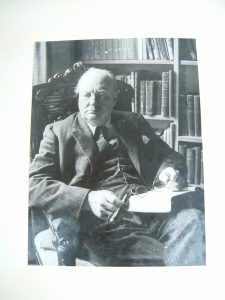
StoryLine
Resignation

Winston Churchill, Parliament Square, London © Sue Lowry & Magellan PR
January 1, 1970
Even now, he did not want this to be the end. He wrote to Eisenhower in the final days of office (the letter is dated ‘April’; he resigned on 5 April) saying that he hoped he might still be able to ‘serve’ the cause of Anglo-American cooperation and the battle against Communism.
Churchill handed over the premiership to Anthony Eden, who had long been waiting in the wings. Eden was already part of the ‘family’; three years earlier, he’d married Churchill’s niece, Clarissa. Churchill wasn’t convinced Eden would be able to do the job – ‘I don’t believe that Anthony can do it’ – but he had no choice.
Upon his resignation, the Queen offered him the dukedom of London. His private secretary, Colville, had already informed her that Churchill would turn it down, apparently because Randolph, Churchill’s son, didn’t want to inherit a title (which in those days would have prevented him or his heirs having a political career) or possibly because Churchill himself didn’t want to lose the name of Churchill and the ability to sit in the House of Commons . ‘Sir Winston’ declined the offer.
Churchill didn’t attend the Geneva Conference held later in 1955, and Eisenhower wrote how his ‘courage and vision will be missed at the meeting’.

2024 International Churchill Conference
Churchill remained a member of parliament – he was re-elected as MP for Woodford in Essex in the general elections of May 1955 and October 1959 – until 1964 and attended sessions occasionally (although increasingly infrequently), but he never spoke in the House of Commons again.
Subscribe
WANT MORE?
Get the Churchill Bulletin delivered to your inbox once a month.


